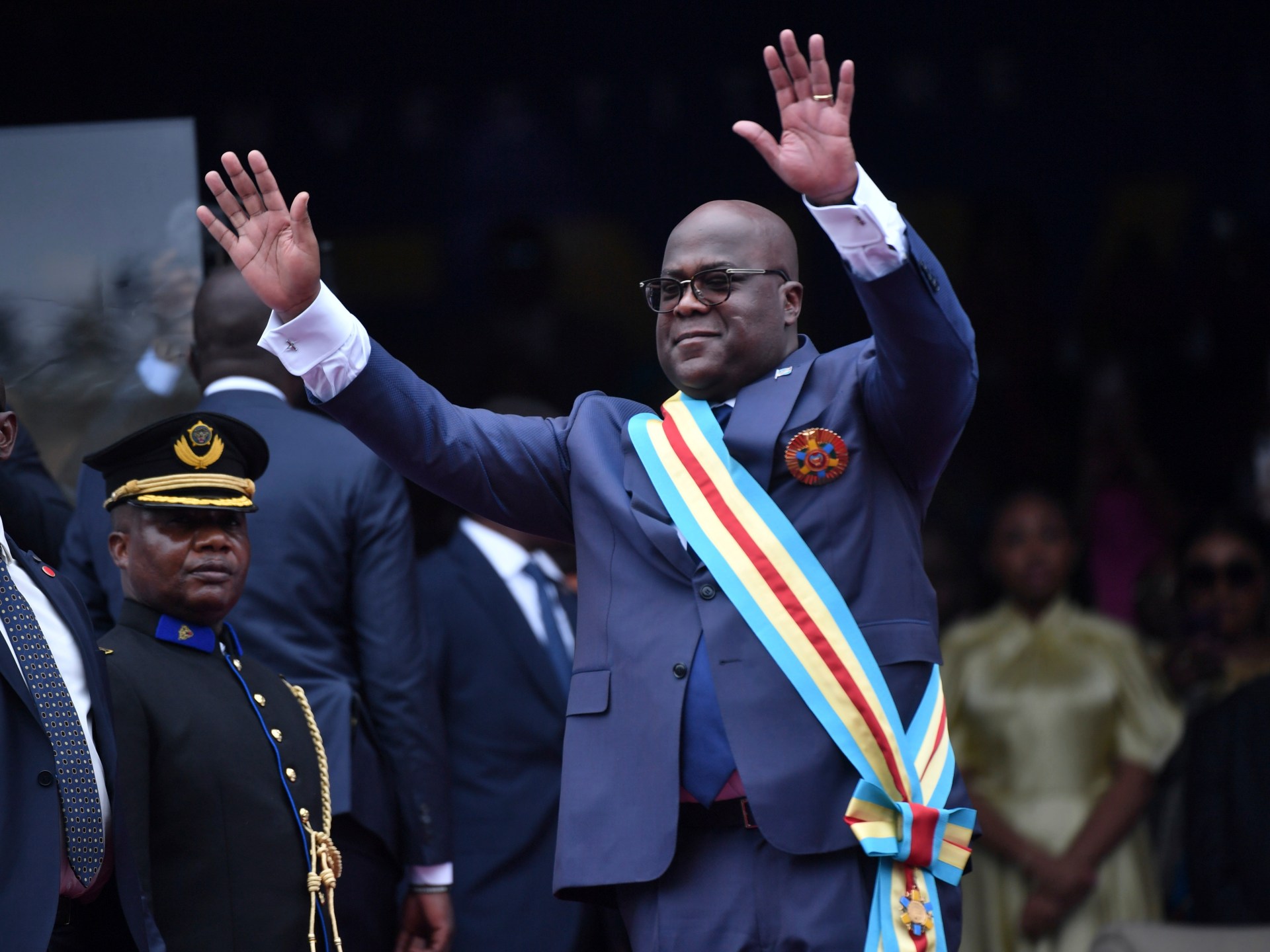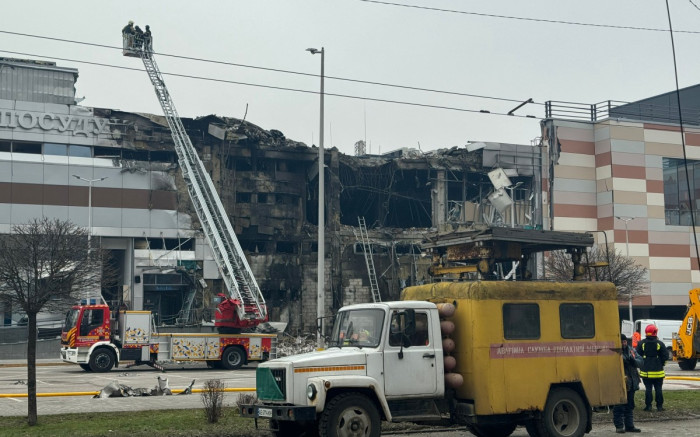
The Congolese president won a landslide victory in December elections that were hard-fought by opposition candidates.
The President of the Democratic Republic of Congo, Felix Tshisekedi, has been sworn in for a second five-year term after his successful inauguration Contested elections in December.
“I take back the command staff you entrusted to me. We want a more united, stronger and more prosperous Congo,” said 60-year-old Tshisekedi during the inauguration ceremony in the capital on Saturday.
“I am aware of your expectations,” he said, referring, among other things, to unemployment, youth, women’s rights and national cohesion.
With tensions simmering in the vast country’s volatile eastern provinces, the leader known as “Fatshi” chose Kinshasa’s 80,000-seat Martyrs Sports Stadium for the inauguration ceremony.
Well before noon, the stalls were filled with singing and dancing in full swing, awaiting the arrival of several invited heads of state from African states and traditional chiefs from the country’s 26 provinces.
Tshisekedi was first sworn in as president in January 2019 after controversially defeating Joseph Kabila.
He won for the first time on a promise to improve living conditions in the Democratic Republic of Congo – rich in natural resources but home to a largely impoverished population of 100 million – and to end 25 years of bloodshed in the east.
The Congolese president has not kept those promises, but this time he pushed hard for his first term achievements, such as free basic medicines, and called for another mandate to “consolidate” progress.
‘Discontent’
The Congolese president won a landslide victory Elections on December 20th received more than 70 percent of the votes.
Voter turnout was more than 40 percent, with around 18 million people voting.
Even before the results were announced in late December, opposition candidates – including businessman Moise Katumbi, who finished behind Tshisekedi with 18 percent of the vote – said they rejected the results and called on the population to mobilize.
One of the logistical problems was that many polling stations opened late or not at all. Materials were sometimes missing and many voter cards were illegible due to smeared ink.
Voting in the election had to be extended to a second day, which local observers and civil society organizations deemed illegal, and voting was still taking place in parts of the country five days after polling day.
Martin Fayulu, who said he was also robbed in the last presidential election, got 5 percent. Nobel Peace Prize winner Denis Mukwege, who won the prize for his work with rape victims, achieved 0.22 percent. These candidates called for the election results to be annulled.
Katumbi and Fayulu appealed to supporters on Saturday to “show their dissatisfaction”. They urged people to “stand up and say ‘no'” no matter where they are.
AFP reporters said tires were burned on Saturday morning on the streets of Goma, the main hub of the conflict-torn eastern province of North Kivu.
In the provincial town of Beni, also in the east, young people tried to set up barricades, but the police intervened.
The electoral commission CENI has identified cases of fraud, vandalism and intimidation, as well as the use of illegal voting machines.
The Democratic Republic of Congo has a history of contentious elections that can turn violent, and many of its citizens have little trust in the country’s institutions.






Recent Comments